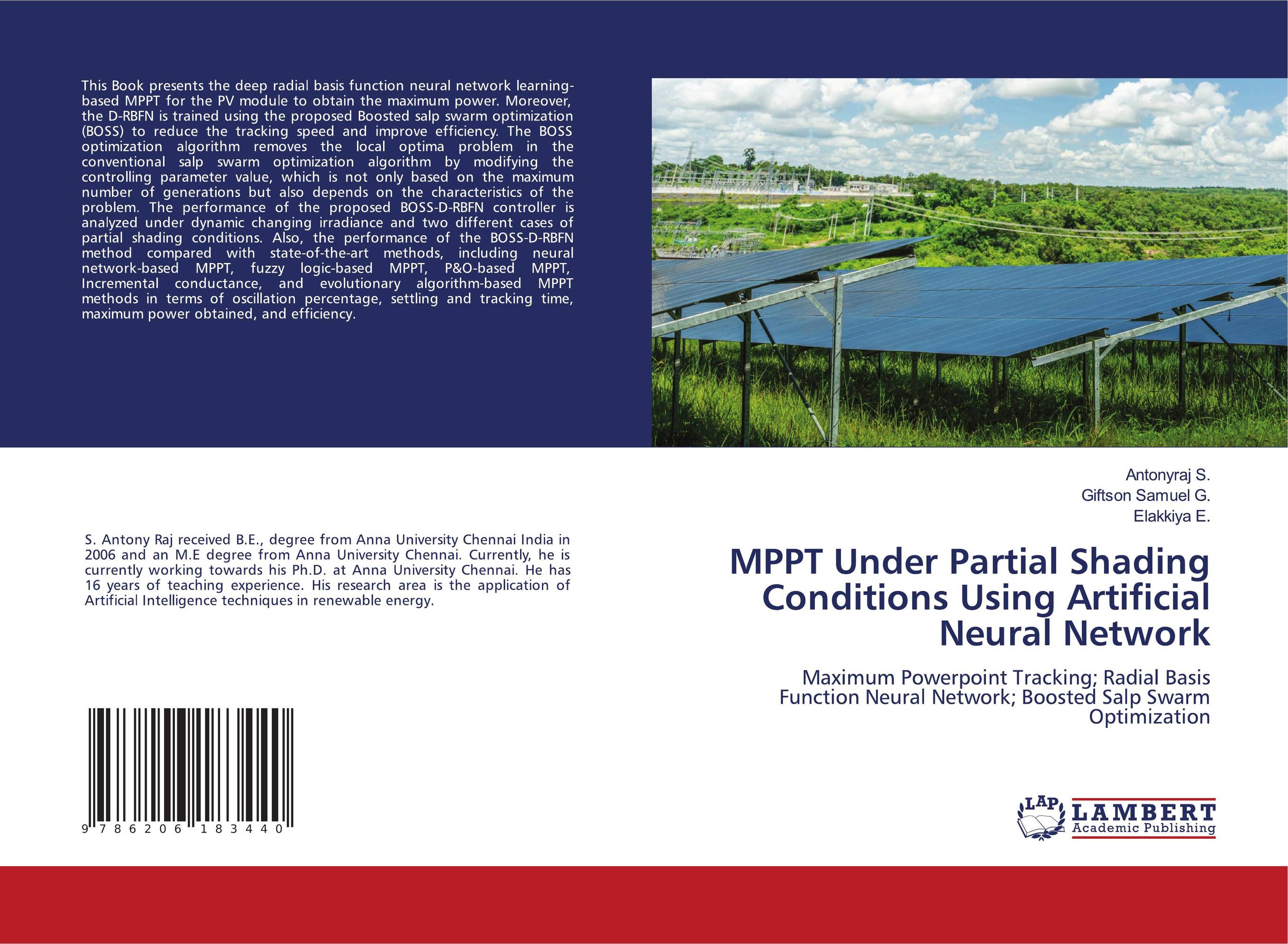| Поиск по каталогу |
|
(строгое соответствие)
|
- Профессиональная
- Научно-популярная
- Художественная
- Публицистика
- Детская
- Искусство
- Хобби, семья, дом
- Спорт
- Путеводители
- Блокноты, тетради, открытки
MPPT Under Partial Shading Conditions Using Artificial Neural Network. Maximum Powerpoint Tracking; Radial Basis Function Neural Network; Boosted Salp Swarm Optimization

В наличии
| Местонахождение: Алматы | Состояние экземпляра: новый |

Бумажная
версия
версия
Автор: Antonyraj S.,Giftson Samuel G. and Elakkiya E.
ISBN: 9786206183440
Год издания: 1905
Формат книги: 60×90/16 (145×215 мм)
Количество страниц: 60
Издательство: LAP LAMBERT Academic Publishing
Цена: 25144 тг
Положить в корзину
| Способы доставки в город Алматы * комплектация (срок до отгрузки) не более 2 рабочих дней |
| Самовывоз из города Алматы (пункты самовывоза партнёра CDEK) |
| Курьерская доставка CDEK из города Москва |
| Доставка Почтой России из города Москва |
Аннотация: This Book presents the deep radial basis function neural network learning-based MPPT for the PV module to obtain the maximum power. Moreover, the D-RBFN is trained using the proposed Boosted salp swarm optimization (BOSS) to reduce the tracking speed and improve efficiency. The BOSS optimization algorithm removes the local optima problem in the conventional salp swarm optimization algorithm by modifying the controlling parameter value, which is not only based on the maximum number of generations but also depends on the characteristics of the problem. The performance of the proposed BOSS-D-RBFN controller is analyzed under dynamic changing irradiance and two different cases of partial shading conditions. Also, the performance of the BOSS-D-RBFN method compared with state-of-the-art methods, including neural network-based MPPT, fuzzy logic-based MPPT, P&O-based MPPT, Incremental conductance, and evolutionary algorithm-based MPPT methods in terms of oscillation percentage, settling and tracking time, maximum power obtained, and efficiency.
Ключевые слова: maximum power point tracking, radial basis function neural network, Boosted Salp Swarm Optimization, Partial Shading Condition



